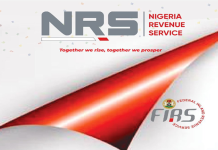Total Reward Philosophy: How you define reward affects how your employees and prospective employees see it. You should define reward at your organization in a broader context that includes the monetary as well as non-monetary benefits that employees get while working at your organization.
A number of non-monetary benefits play an even more important role in attracting, motivating and retaining high-quality employees, so you should include them in your definition of “Reward”.
For example, if your business offers deep discounts to employees for the purchase of your products or services, or offers bursaries and tuition-free scholarships to employees, or even the total amount that the company spends on employee training and other welfare activities like Birthday celebrations and other things count as part of Reward.
Some companies create a staff cooperative society, and fund the cooperative with some seed capital and periodic contributions from the company – this is also part of your Reward.
A school may transfer the School Bus and the proceeds thereof to the Staff Cooperative or allow the Cooperative to run a Shop or sell other things on the premises. As a business owner you have two responsibilities a) to create opportunities for more value to be created for your employees, and then
- b) to include these items of “value” to your definition of Reward, and use it when engaging prospective and existing employees.
Here are a few tips for a business owner on how to manage remuneration and reward for your employees:
#1: Pay for Performance:
One of the important philosophies that you should incorporate in your compensation structure is linking pay to performance.
Since the financial reward is an important motivator, then business owners should create compensation structures that reward people – not just for coming to work each day and putting in an effort, but more importantly for producing results that help to move your business forward.
A hotel, for example, could decide to share a part of the service charges on food and drinks served in guests’ rooms with the waiters as an incentive to drive excellent service and as a compensation for the excellent service that drives room service orders.
At a store, you can reward employees with extra incentives on the sales of products that they make. In some cases, these incentives actually outstrip the fixed pay that employees receive and create a bigger incentive to perform.
Another approach is to have two salary components – one that is fixed and another that varies with business results. So for example, an employee’s total salary could be N150, 000 of which N70, 000 is variable and is only earned when certain business results or targets are achieved.
This way, depending on the individual and group performance, such an employee may earn anything from N80, 000 to N150, 000 each month.
This could serve as an incentive for employees to strive to meet and surpass their targets and earn the upside value of their salaries.
Also, as part of your performance management system, promotions and salary increases must also be done on a periodic basis based on clear performance expectations, and these should be communicated to employees to drive the motivation required to grow your business.
#2: Stay Competitive:
As a business owner, you should be concerned that the remuneration that you offer your employees is competitive within your market and industry.
You should decide a couple of things – firstly: how you want to benchmark yourself relative to similar organizations and secondly, how you want to track the compensation of other businesses like yours so that you can stay competitive.
On the first issue, based on the size of your business and your growth expectations, you can benchmark yourself at a certain percentile rank of the industry.
For example, a medium-sized school in Port Harcourt which attracts fewer pupils at school fees that are about 60% of that of the top-notch schools in the town may decide to benchmark its employee remuneration at the 70th percentile of private schools in Port Harcourt.
This means that the school will always seek to ensure that its remuneration, when ranked amongst other schools, is at the 70% level when compared to the highest paying schools.
This definition is based on the school’s size, results, and future prospects and may change over time depending on the school’s fortunes. Benchmarking in this way gives you as the School owner a clear focus about what your salary scales should be and what your employees should generally expect.
On the second issue, you could work with HR consultants to help you with salary surveys for your industries. Salary Surveys help you to estimate where the rest of your industry is with respect to remuneration, so that you can apply your benchmark and appropriately set the remuneration of your employees.
#3: Ensure Regulatory Compliance:
As you design your compensation systems, you should ensure that they are compliant for all relevant employee regulations in Nigeria like the Pension Reform Act, the Personal Income Tax Act, and the Workmen’s Compensation Act.
With an increased focus on building proper social welfare systems in the country as well as improving Government revenues, your business may be required to show evidence of compliance with these regulations to remain in business or get a chance to carry out some specific transactions.
Rather than scurrying around at the last minute to try to comply with these regulations, build them into your compensation structure and implement them on a continuous basis.
#4: Incorporate Recognition:
Your approach to reward should also include recognition schemes. You can create recognition schemes around specific behaviours or results that you want to see in your employees and celebrate such achievements for deserving employees.
Some organizations give awards and gifts for long-service, others pick a particular issue and have competitions around them – sales competitions, creativity competitions, etc., and award special prizes and incentives to winners.
They create a lot of fun, positive competition and innovation in your organization and also help to bolster team spirit and morale.
#5: Use Salary Scales and Other Disciplines:
The final discipline that is essential for your reward and remuneration system in your organization is ensuring that you have proper salary scales for all the jobs in your organization.
You, therefore, need to have salary grade levels and the approved remuneration (absolute or in bands) for each grade level. These salary scales will help you in your recruitment and placement decisions for your employees.
Also, all employees’ remuneration should be properly documented and kept confidential and employees should also receive payslips at the end of each month.
Your salary payment system should be efficient and consistent, and any challenges with paying salaries should be communicated ahead of time.
Employees want to see that you are as committed to paying their salaries as you are to driving performance.
So ensure that you push for the timely payment of salaries and communicate challenges with the same tenacity with which you push for performance and communicate performance feedback.
Remuneration remains an important part of employees’ motivation, so you have to ensure that you have a consistent approach, philosophy, and structure for managing remuneration and rewards in your business.













